For the last 5+ years, Microsoft and Google have ruled the market for email and groupware services. These popular email systems dominate the corporate world, and the omnipresent Outlook mail client has become the de facto standard for groupware. Since Office 365 is closely integrated with Microsoft’s Office products, users have access to a wide variety of productivity software and features, whether they’re using a desktop or a mobile client. The same is true for Google Workspace, with Google Docs and other productivity applications from Google.
However, many companies have concerns about storing their data in the Microsoft cloud. In this article, we will look at some open-source alternatives and their advantages. It’s not just about becoming vendor-independent and reducing costs; it’s about using software with open standards and a different level of security—for the groupware server itself and the operating system behind it.
All five alternatives in this article are Linux-based. While Roundcube, SOGo, Nextcloud, ownCloud, and the OX App Suite vary widely in functionality and are therefore attractive to different types of enterprises, they all provide free editions with the option to purchase paid support and add-ons. All candidates can either run on-prem or in the cloud. On top of that, Thexyz offers a SaaS solution for all these open-source solutions.
SOGo
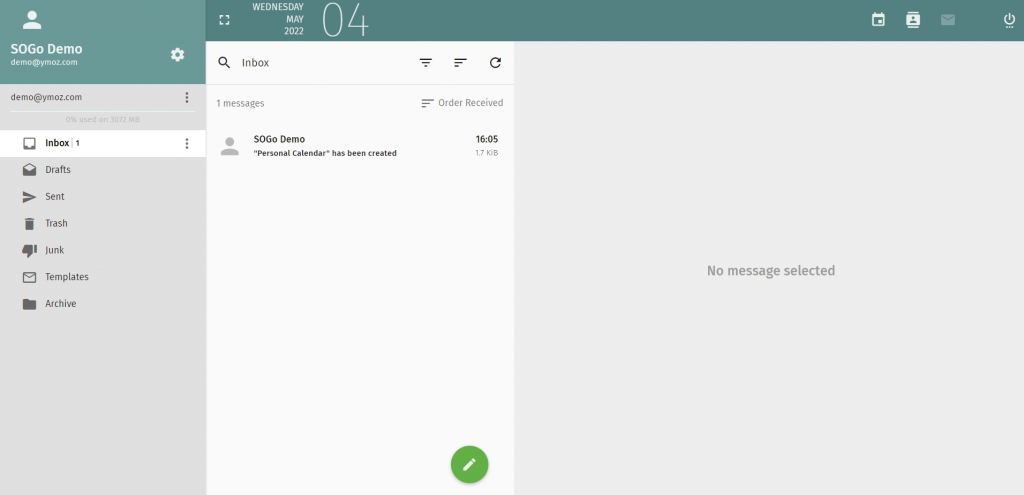
SOGo (formerly named Scalable OpenGroupware.org) is open-source collaborative software (groupware) with a focus on simplicity and scalability, formerly known as Scalable OpenGroupware.org, it is published under the GPL v2/LGPL v2 license. SOGo is developed and maintained by a Canadian company called Inverse Inc. SOGo uses existing services including Microsoft Active Directory, OpenLDAP, SQL, and IMAP. Usage of industry services contributes to scalability. It is accessible through its web interface, desktop clients, or mobile devices.
SOGo is designed for a very large number of users and—just like Exchange—supports database sharding (horizontal distribution of databases across multiple hosts). The flexible storage backend allows administrators to extend their setup by adding other servers or cloud accounts.
SOGo can be ordered on a SaaS plan at Thexyz: https://www.thexyz.com/sogo
You can browse the latest version of the source code online from Inverse’s GitHub repository: https://github.com/inverse-inc/sogo
Roundcube
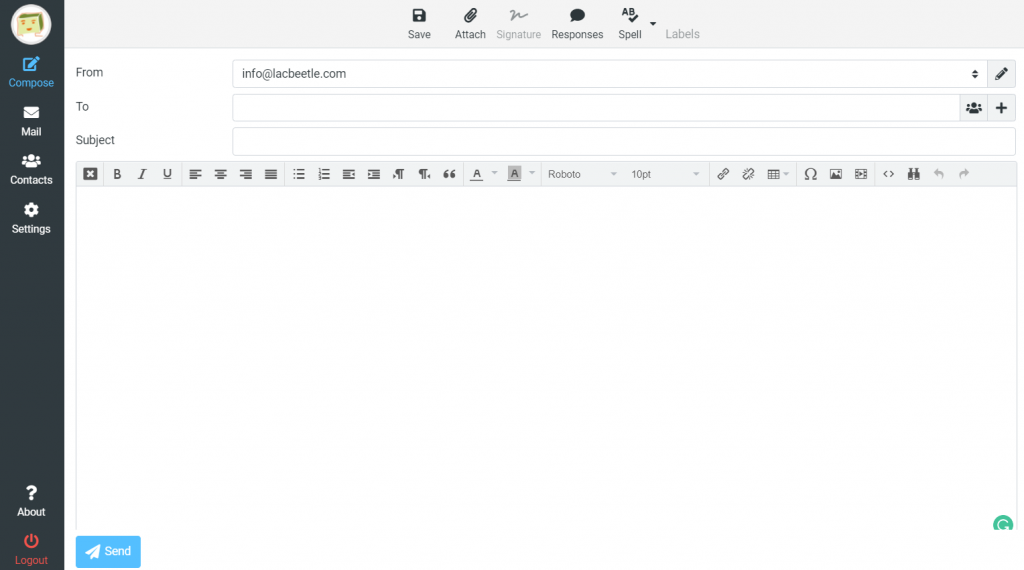
Roundcube is written in PHP and is designed to run on standard web servers such as Apache, LiteSpeed, Nginx, Lighttpd, Hiawatha or Cherokee in conjunction with a database of either MySQL, PostgreSQL and SQLite. The user interface is rendered in XHTML and CSS and is fully customizable with a template system for custom themes.
Roundcube can be ordered on a SaaS plan at Thexyz: https://www.thexyz.com/roundcube
You can browse the latest version of the source code online from The Roundcube Team’s GitHub repository: https://github.com/inverse-inc/sogo
Nextcloud
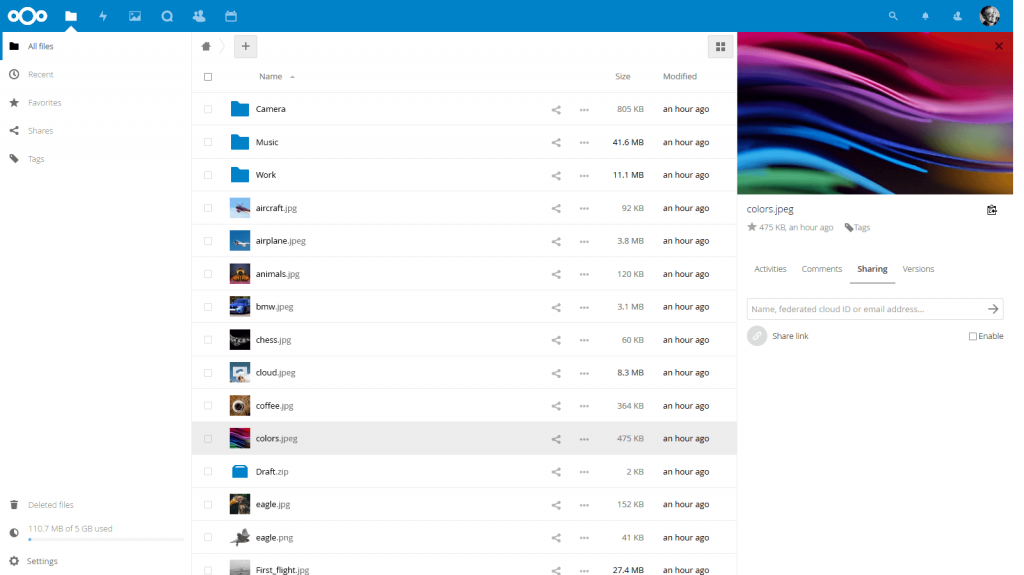
Nextcloud, with offices in Stuttgart and Berlin, is licensed under the AGPLv3. Similar to Dropbox, Office 365 or Google Drive, users can access the software suite via their desktops (Windows, Linux, and macOS), web browsers, or native mobile apps for Android and iOS. Since version 18, Nextcloud includes Nextcloud Talk (a Zoom alternative) and Nextcloud Groupware (calendar, contacts, and mail) in addition to Nextcloud Files (file sync and share), and changed its name to Nextcloud Hub.
User and group administration happens via OpenID or LDAP. Various storage backends are supported, such as FTP, S3, and Dropbox. Nextcloud works with several database management systems, including PostgreSQL, MariaDB, SQLite, and Oracle Database. Administrators can extend the functionality with third-party apps from the Nextcloud app store.
The original ownCloud developer Frank Karlitschek forked ownCloud and created Nextcloud, which continues to be actively developed by Karlitschek and other members of the original ownCloud team. Nextcloud is completely free of charge. On top of that, the company offers a Nextcloud Enterprise build (pre-configured, optimized, and hardened for enterprise deployments).
Nextcloud can be ordered on a SaaS plan at Thexyz: https://www.thexyz.com/nextcloud
You can browse the latest version of the source code online from the Nextcloud GmbH GitHub repository: https://github.com/nextcloud/server
ownCloud
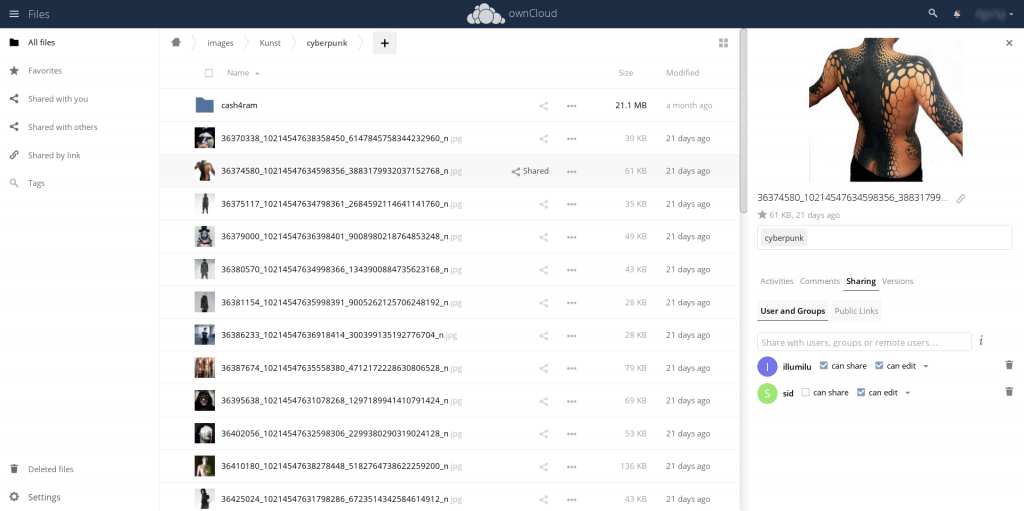
ownCloud is a file sync, share, and content collaboration software developed and maintained by ownCloud GmbH in Nuremberg, Germany. The core of the client-server software and many community apps are published under the AGPLv3. Several enterprise apps which extend the functionality are licensed under the ownCloud Commercial License (OCL).
ownCloud is mainly a content collaboration software, including online office document editing, calendar, contact synchronization, etc. Mobile clients are available for Android and iOS, and the desktop app integrates into the native file managers in Windows, macOS, and Linux. The Web interface allows access without installing dedicated client software. ownCloud supports WebDAV, CalDAV, and CardDAV. LDAP is included, but ownCloud also connects to other Identity Providers supporting the OpenID Connect authentication standard.
ownCloud offers integrations for Microsoft Office Online Server, Office 365, and Microsoft Teams. Plugins for Microsoft Outlook and eM Client are available. If necessary, the External Storage Feature connects to different storage providers, like Amazon S3, Dropbox, Microsoft SharePoint, Google Drive, Windows network drives (SMB), and FTP.
ownCloud can be ordered on a SaaS plan at Thexyz: https://www.thexyz.com/owncloud
You can browse the latest version of the source code online from the ownCloud GmbH GitHub repository: https://github.com/owncloud
OX App Suite
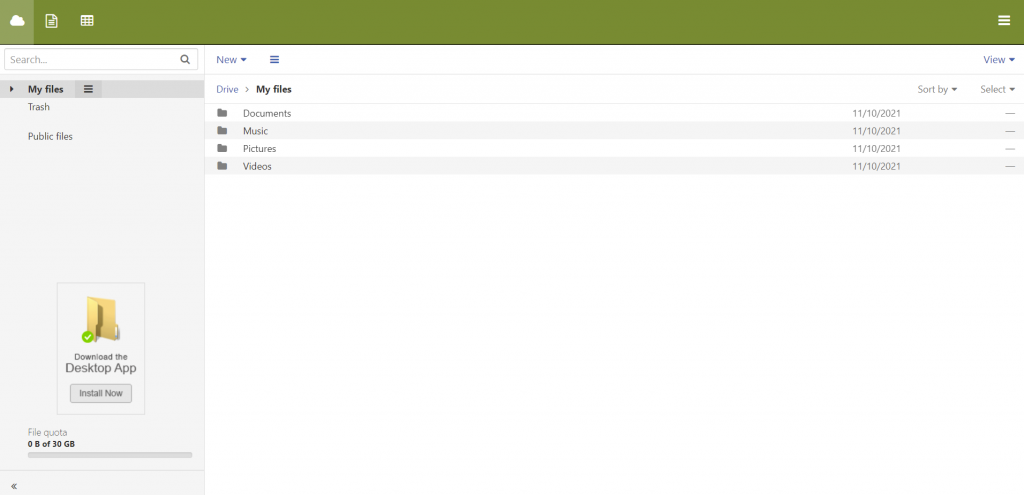
Open-Xchange was founded in 2005 with headquarters in Olpe and Nuremberg, Germany. Today, OX has offices in various European countries, the USA, and Japan. The OX App Suite is a modular email, communication, and collaboration platform, mainly designed for telcos, hosting companies, and other providers delivering cloud-based services.
The backend is released under the GPLv2, and the frontend (UI) under the AGPLv3. Users can access the app suite via their preferred browser or a mobile app for Android and iOS. Alternatively, native clients on both mobile and desktop are available for OX Mail and OX Cloud Drive. Thanks to CardDAV and CalDAV extensions, Exchange ActiveSync, and the OX Sync App for Android, synchronization of contacts, calendars, and tasks is possible.
OX App Suite contains apps for email, contacts, calendars, and tasks. Additional tools and extensions—some open-source, some paid features—are available, including OX Documents (text documents, spreadsheets, presentations), OX Drive (manage, share, and synchronize files), OX Guard (encryption of emails and files), and more.
OX App Suite can be ordered on a SaaS plan at Thexyz: https://www.thexyz.com/open-xchange
You can browse the latest version of the source code online from the Open-Xchange GitHub repository: https://github.com/Open-Xchange-Frontend
Choosing open-source software over proprietary solutions
Private email and business email on a custom domain name do not need to cost a lot of money, and there is certainly no need to settle for a proprietary solution if you feel it will be more reliable. If you’re not too keen on the administrative responsibilities, though, all five open-source Exchange alternatives are available as SaaS solutions through Thexyz with our email technical support, and you can run the software on-premise—always in control, but never alone.



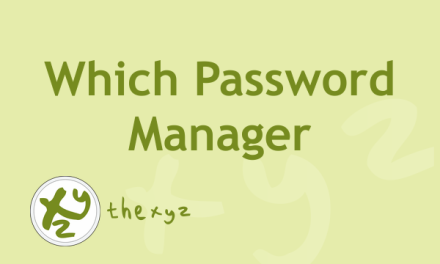




I’ve been pretty impressed with TheXYZ email after switching from Google.
Kdenlive for video editing
Some of my favorites that aren’t on the list:
Blender
RawTherapee
Natron
KiCad
Seafile
Scribus
GnuCash
Here are some others:
Project management
Kanboard
Code management
Gitlab
Phabricator
Gitea
Telephony
Asterisk
Wiki
MediaWiki
DokuWiki
Bookstack
DMS
Paperless-ng
File management (web)
Xbackbone
Compiler suites
GNU CC
CLANG/LLVM
Monitoring
Zabbix
Video editing
OBS Studio
+1 Etherpad as alternative to Google docs
I’d also add:
Godot: game engine, an alternative to Unity
VSCodium: code editor
Firefox: web browser
Linux: yes, it’s obvious, but still
Insomnia: rest-client, alternative to postman